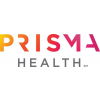At Bon Secours Mercy Health, we are dedicated to continually improving health care quality, safety and cost effectiveness.
Our hospitals, care sites and clinicians are recognized for clinical and operational excellence.
Hours :
Monday- Friday 10a-2p
Summary of Primary Function / General Purpose of Position
The Surgical Services Registered Nurse (RN) delivers patient care utilizing the nursing process through data collection and assessment, identifies and determines the priority of patient's problems / needs, and evaluates the process and outcome of nursing care;
coordinates, provides and directs patient teaching activities and coordinates the care provided by health team members.
Essential Job Functions
- In collaboration with the interdisciplinary care team, conducts initial and ongoing patient assessment, analyzes assessment data, creates a plan of care, implements treatment and evaluates treatment effectiveness.
- Administers medications in a safe manner consistent with the State of Practice and Bon Secours Mercy Health policies and procedures.
- Serves as point of contact for patients' care coordination throughout hospital departments.
- Acts as a patient safety advocate by participating in ongoing quality improvement in the department.
- Delegates tasks and functions according to applicable laws, regulations, and standards, taking into consideration the competency of the assignee.
- Responsible for managing the nursing care of the patient within the OR and coordinating the needs of the surgical team with other care providers necessary for completion of surgery.
- Observes the surgery and surgical team from a broad perspective and assists the team to create and maintain a safe and comfortable environment for the patient.
- Provides preop, intraop, and post-op care, including assessment and discharge instructions.
- Assess the patient's condition before, during, and after the operation to ensure an optimal outcome for the patient.
- Anticipates the scrub nurse's needs and opens sterile packs, operates equipment, and keeps accurate records.
- Responsible for reprocessing if on Endoscopy team.
- BSMH nurses are expected to practice and deliver care in accordance with the core concepts and intention of the BSMH Nursing Professional Practice Model.
This document is not an exhaustive list of all responsibilities, skills, duties, requirements, or working conditions associated with the job.
Employees may be required to perform other job-related duties as required by their supervisor, subject to reasonable accommodation.
Licensing / Certification
Current RN License in the state in which they are working or covered by compact (required)
BLS Basic Life Support (preferred upon hire, must obtain from approved source prior to direct patient care)
ACLS Advanced Cardiac Life Support (preferred)
PALS Pediatric Advanced Life Support - American Heart Association (preferred)
CNOR Certified Perioperative Nurse (preferred)
SGNA Society of Gastroenterology Nurses and Associates (preferred)
Education
Bachelor of Science Nursing (preferred)
Work Experience
2 years of Critical Care experience (preferred)
Completion of OR internship program (preferred)
Training
Successful completion of Periop 101 (preferred)
Skills
- Assigns patient care according to the nursing skill, knowledge, and scope of practice of staff.
- Orients, facilitates learning experience, and provides education (based upon quality improvement indicators, outcomes, and implementation) to nursing staff and others.
- Possesses clinical knowledge, skills, and competency to provide evidence-based patient care in accordance with the current standards of practice, policy and procedure, and BSMH mission.
- Performs comprehensive assessment of patient's clinical condition and psychosocial needs of the patient and their supportive resources.
- Safely and efficiently develops, implements, and prioritizes plan of care.
- Application of the nursing process in patient care delivery.
- Assesses patient's physical and emotional responses to treatment to evaluate effectiveness of intervention and patient outcomes;
revises plan of care accordingly.
- Assists patient and family in coping with patient's illness.
- Collaborates with others in the delivery of coordinated patient care.
- Strong interpersonal and verbal / written communication skills.
- Applies cultural diversity and inclusion principles when caring for patients and their support resources.
- Recognizes own limitations and seeks assistance and acquires information to perform safely.
- Advances personal and professional growth through participation in educational programs, current literature, in-services, and workshops.
- Exhibits professionalism through accountability for own and delegated actions.
- Integrates cost-effective measures into practice and models effective stewardship of available resources.
- Practices self-care and cultivates resilience in conflict and difficult circumstances.
- Protects the safety and privacy of all persons.
- Understanding and utilization of office and clinical technologies.
- Ability to communicate with patients in a manner they can understand considering their personal preferences.
- Compassionate, relationship-based approach to help find meaning in illness, suffering, pain, and existence.
- Remains calm, adaptive, and collective during an emergency.
- Knowledge of AORN and SGNA standards and best practices
- Knowledge of sterile field and sterilization guidelines
- Positions and completes procedures such as Foley, prepping, IV insertion, catheters, etc.
- Assists in gowning and draping
- Anticipates needs for the use of surgical equipment and supplies
- Monitors room and personnel for adherence to aseptic technique
- Safely moves and transports patients
- Assists anesthesia during induction and emergence
Working Conditions
Periods of high stress and fluctuating workloads may occur
May be exposed to physical altercations and verbal abuse
May be required to use physical restraints
May be exposed to high noise levels and bright lights
May be exposed to limited hazardous substances or body fluids*
May be exposed to human blood and other potentially infectious materials*
May have periods of constant interruptions
Individuals in this position are required to exercise universal precautions, use personal protective equipment and devices, and learn the policies concerning infection control.
Physical Requirements
Lift







